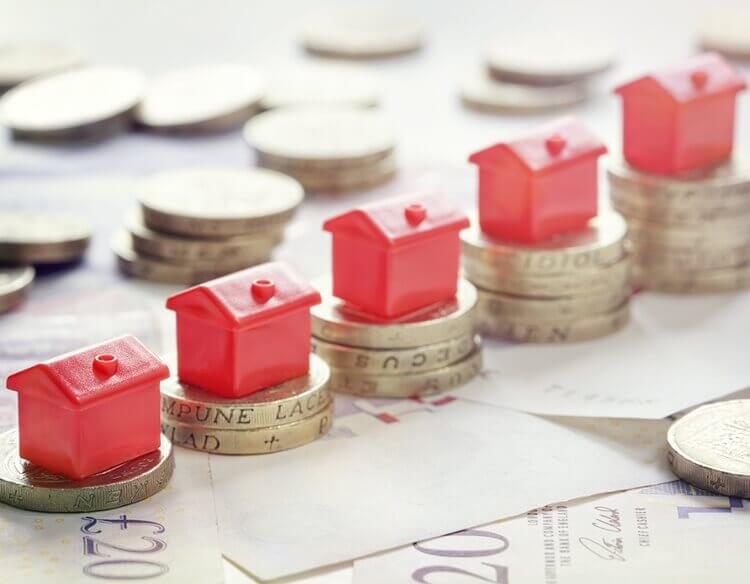
Needless to say, the hospitality industry is one of the most competitive industries. Every day, hundreds of hotels and other accommodations are coming up in the market.
NB: This is an article from eZee Absolute
And to top that, existing hotel businesses aren’t left behind — owing to those strategies they apply strategies to strengthen their position in the market.
That being said, it becomes important MANDATORY to do some hotel competition analysis regularly.
If you think about it, competition analysis is one of the crucial aspects for a hotel’s (or any business’) growth.
Before you start worrying about it, let me be very clear – it is actually a NO-BRAINER.
First, let us understand,
What is hotel competition analysis?
If I talk in general – competition analysis is the evaluation of your competitors’ services and products in order to strategize your business growth.
It works on similar grounds for the hotel industry as well (more or less).
Usually, most of the hotels think every accommodation provider next door is their competitor.
Well, that’s not the case!
Although, you need to have the RIGHT set of competitors for an effective competition analysis (commonly known as comp-set).
But, before you go ahead to form your comp-set, you should know,
Why to perform hotel competition analysis?
It’s chief purpose is to give you a clear picture of what you are up against. In other words, to determine the strengths and weaknesses of the competitor hotels. Based on this analysis, you can plan out better strategies that give distinct advantages to your business.
Other than that, hotel competition analysis lets you create barriers to prevent competition from entering your market.
Obviously, you MUST KNOW your competitors thoroughly to win against them.
Now, let me tell you,
How to define the RIGHT comp-set for your hotel?
Well, apples can be compared with apples only! They can’t be compared with oranges.
Similarly, if you are a budget hotel, a Marriott can not be your competitor.
You need to understand that every hotel’s comp-set is UNIQUE.
Basically, a comp-set is a group of competing hotels that are selected depending on a wide range of parameters. So, these are the parameters to consider:
- Hotel size: Consider the number of rooms and room types of your competitor hotels.
- Extra amenities: Find out what different types of services your competitor hotels are providing. If you are a hotel providing pool services, then find out the hotels that are providing more or less the same amenities as you do.
- Property type: Obviously, each property type is NOT your competitor. As I said earlier, if you’re a resort, then a hostel can’t be your competitor.
- Star-rating: It’s simple, if you are a 3-star hotel, then you can’t compare your standard of service with a 5-star hotel.
- Location: You also have to take yours and your competitors’ location into account.
- Brand Affiliation: Big hotel brands affiliate the smaller hotels (3 or 4 star) under their brand name. And travelers tend to prefer those brands over independent hotels. (Regardless, of their standard or services. )
- Audience: This is the most significant parameter. You need to observe and find answers to following questions:
- What type of guests are your fellow hoteliers catering to?
- Is it overlapping your target audience?
Based on these parameters, select the hotels that actually fit to be your competitor. It is not necessary that you should consider all of these parameters. Any 5 parameters will be enough.
Here’s an example of how to create a comp-set for your hotel:
For instance, you are an independent budget hotel with 10 rooms located at the city center.
- Hotel size: Since you have 10 rooms, hotels having less than or equal to 15 rooms can be a part of your hotel comp-set.
- Property type: Being a small accommodation provider, B&Bs or hostels with limited amenities can be in your comp-set. (You absolutely CANNOT consider resorts or vacation rentals which provide several amenities. )
- Star rating: It’s simple, if you are a 3-star hotel, then you can’t compare your standard of service with a 5-star hotel.
- Location: You are a hotel located in the city center. The hotel located near a scenic destination of your city is not your competitor.
- Brand Affiliation: On the same grounds, even 3 star hotels affiliated with any other brand name cannot be your competitor.
Choose your competitors wisely based on these parameters. (Also note that, I have considered 5 parameters only.)
Moving ahead, you may wonder,
Where can I find competitors for my hotel?
There are different platforms from where you can find your competitor hotels.
Proximity: You could either walk around your proximity and visit the hotels that could be your probable competitors.
Google: Believe me, Google is the best option. Simply search for ‘hotels in your location’. You will get details of hotels that appear in the search results along with your hotel.

When you search for hotels in your location, this is how Google displays a list of hotels.
From the list, jot down the hotels similar to yours.
OTAs: Even OTAs can assist you in locating your competitors. You can practice the same method as you used in Google on different OTAs and find your competitors.
Furthermore, you can also reach out to your local travel agents or agencies, tour operators, event organizers, and other business partners with whom your competitors may deal with.
By far, we have covered how to define your competitors and where you can find them.
Now, let’s dig deeper into,
How hotels can perform competition analysis?
Now, you’d be probably thinking that I explained everything about what is competition analysis and how to find your comp-set.
But Lopa, what next?
So, let me tell you about the MOST IMPORTANT step after that.
That is, analysing your competitors. Here’s how you do it!
1. Perform SWOT Analysis
SWOT Analysis is a technique used to help any business to identify Strengths, Weaknesses, Opportunities, and Threats (SWOT).
How to perform SWOT analysis?
Strengths and weaknesses are internal aspects of your hotel. Whereas, opportunities and threats are mostly external aspects.
Basically, once you have the right compset for your hotel defined, then find out their total offerings, room types, number of rooms and various other details. When you analyze your competitors, you MUST consider all these factors.
As you do that, you get a clear picture of yours and your competitors’ strengths and weaknesses.
How to use hotel SWOT analysis for your benefit?
You can create opportunities against your competitors’ threats and strategize accordingly.
All you have to do is compare your services and amenities with them. Try to strengthen your weakness against your competitors.
For example: Let’s say, none of your competitors are allowing pets. Then you can create an opportunity from your competitors’ weakness into your strength by allowing pets.
OR
If all your competitor hotels are offering pool services, then it is a threat. Well, you create an opportunity here as well, by including the spa services in your offerings.
2. Analyze pricing strategy
You must be applying different pricing strategies to drive the maximum review. (Here’ are some other proven pricing strategies, you may want to explore.) While you are increasing or decreasing your room rates, you should know what your competitors are doing. For that, you should analyse their pricing strategy.
How to analyse your competitor’s pricing strategy?
Nowadays, there are tools like rate shopper that gives your competitor’s rates right in your system.
When you get all the details right in your system, you can closely follow how frequently they are changing rates.
How to use pricing strategy analysis for your benefit?
Once you get a hold of your competitors’ pricing strategies, you can make the smart move when it comes to strategize pricing for your hotel.
For example: If your competitors are consistently hiking their prices on weekend. You should also consider raising your rates as well.
3. Keep an eye on their social media presence
As facts stand,
Today around 61% of travelers are observing the activities of hotels on social media before booking their stay.
On this note, you see how important social media is. Additionally, social media plays an important role in enhancing your online presence, getting you better visibility and reaching out to your target audience.
How to analyse your competitors’ social media presence?
Generally, the business accounts are public (You can even follow them). From the list of the comp-set, find the social media handles of each competitor hotel.
Observe the quality of their content and their frequency of posting the content. Also, see whether they are engaging with their audience or not.
How to use social media analysis for your benefit?
It’s quite simple. If they are less active on social media platforms, then you can start being more active. If they are active but are not engaging with the audience, then you should start engaging via your social media handles by running contests, polls, giveaways and so on.
You may like to read: 9 simple steps to do social media marketing for hotels.
4. Review Analysis
Reviews are one of the important factors of the hotel’s competition analysis. If you look carefully, then reviews are actually the mirror of any hotel and its services.
When you analyze the reviews, you can figure out which features of your competitors are being appreciated by guests and which aren’t.
How to analyse your competitors’ reviews?
Well, reviews are easily accessible. You can find your competitors reviews on
- Its website,
- OTA
- Travel websites like TripAdvisor, Trivago and so on
You can examine their reviews on any of these platforms. You will get a clear picture of the qualities and flaws of your competitors.
How to use review analysis for your benefit?
With this detailed analysis, you can get a clear picture how the GUESTS are thinking of your competitors. Based on this, you can modify your services as well.
For example: Let’s say you have performed review analysis of competitor A.
From the analysis, you found frequent complaints of housekeeping. On the flip side, you see, they are being praised for providing extra services like pick-up, drop-off, and so on.
Now what you can do is- get connected with the cab services and offer such services. In addition to this, you can also offer guided tours of your locality.
This is how the analysis of competitors’ reviews helps you stand against your competitors.
In conclusion
So this was all about the what, the how and why of hotel competition analysis.
In a nutshell, competition analysis plays a vital role in shaping your company’s strategies. It determines your strengths and shortcomings within the market. If done smartly, it gives your business a distinct advantage versus your competitors. Above all it gives you a different yet important perspective to grow your hotel business.




